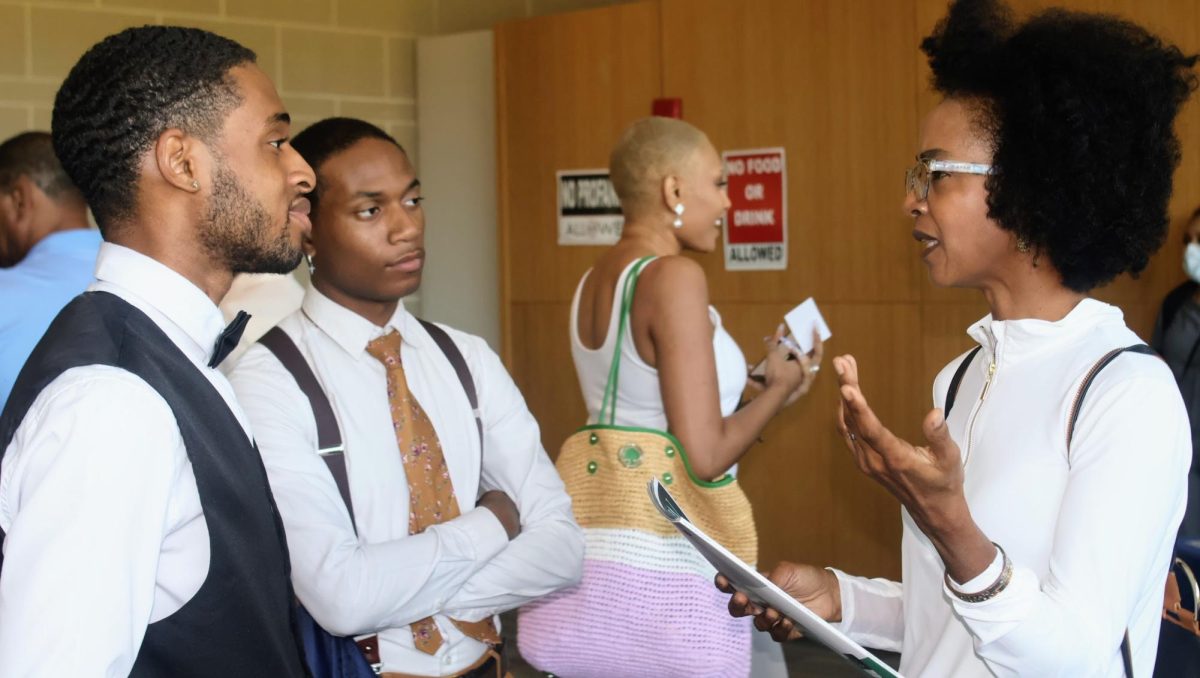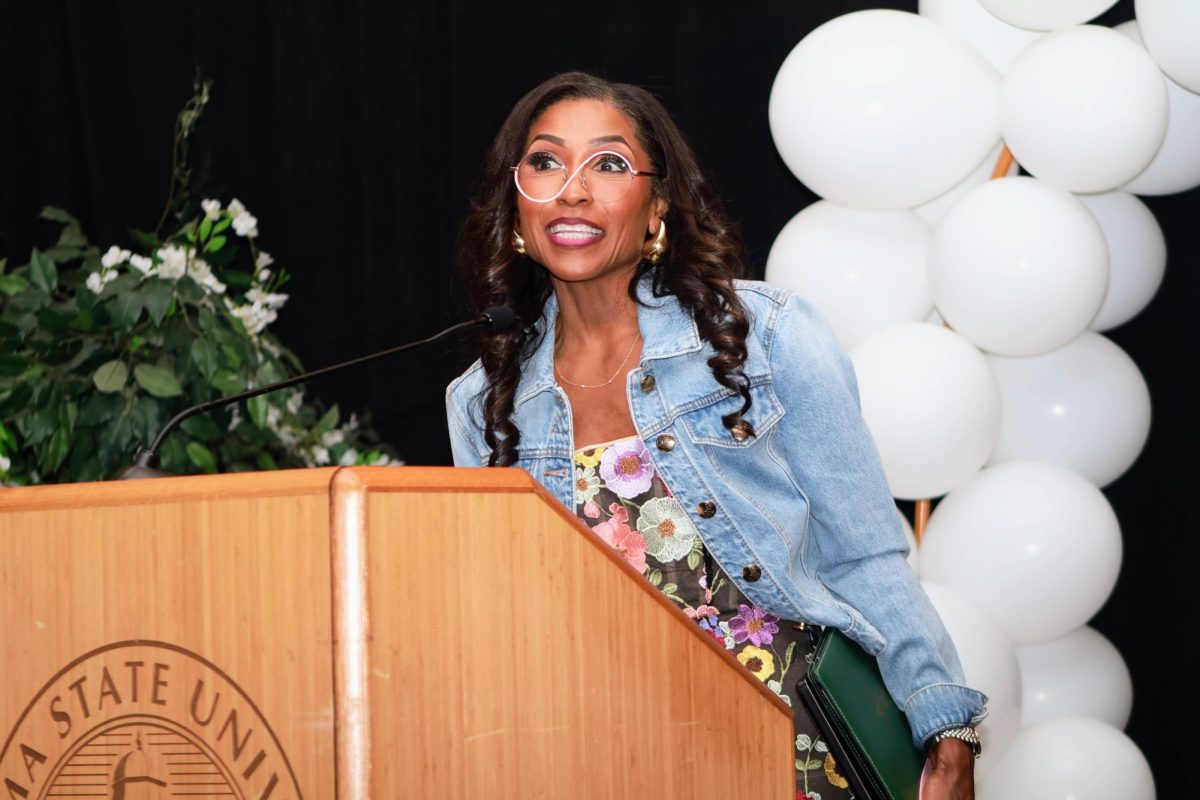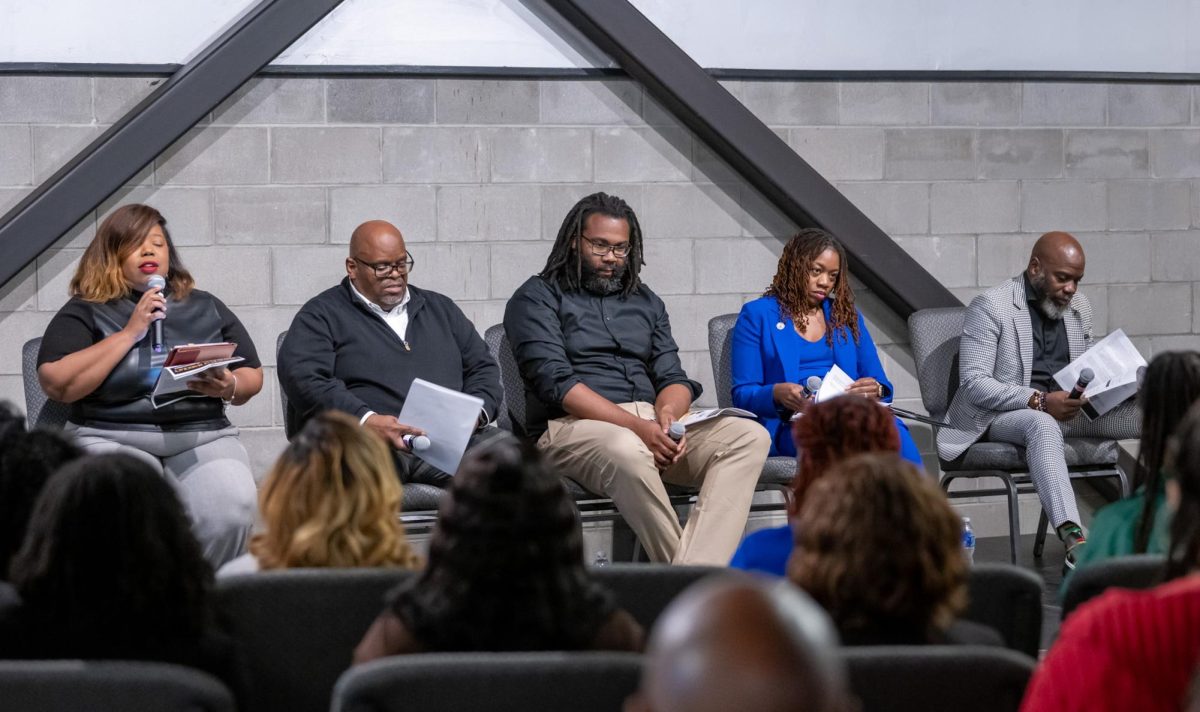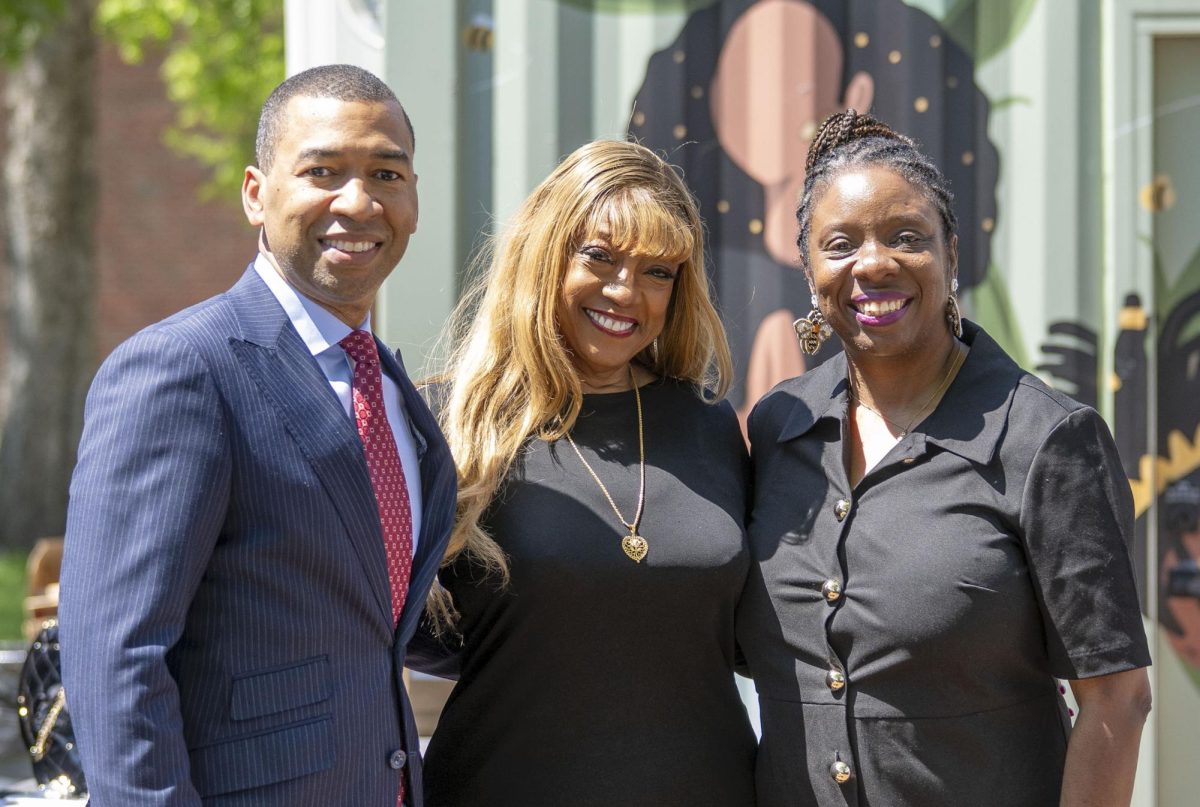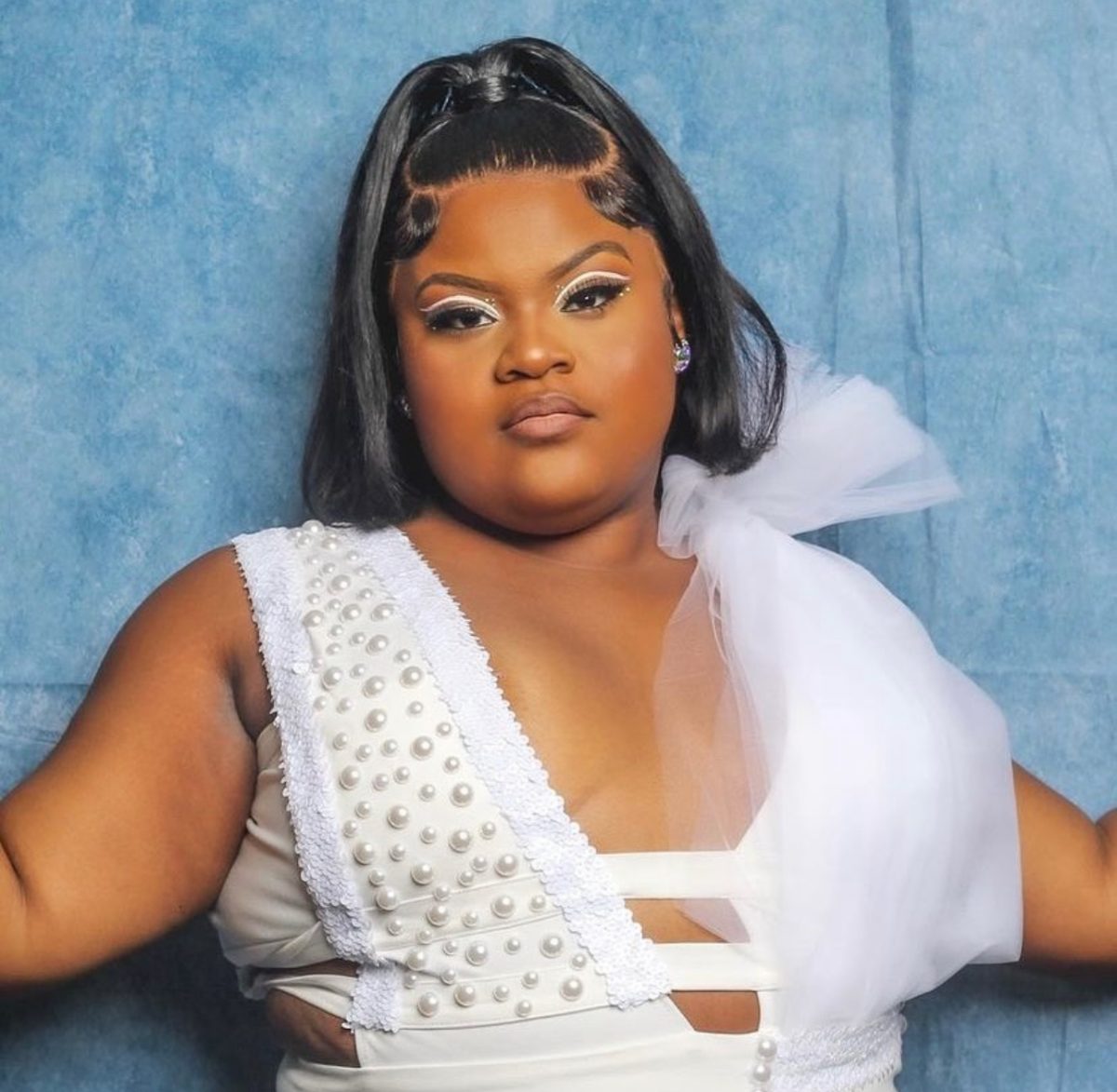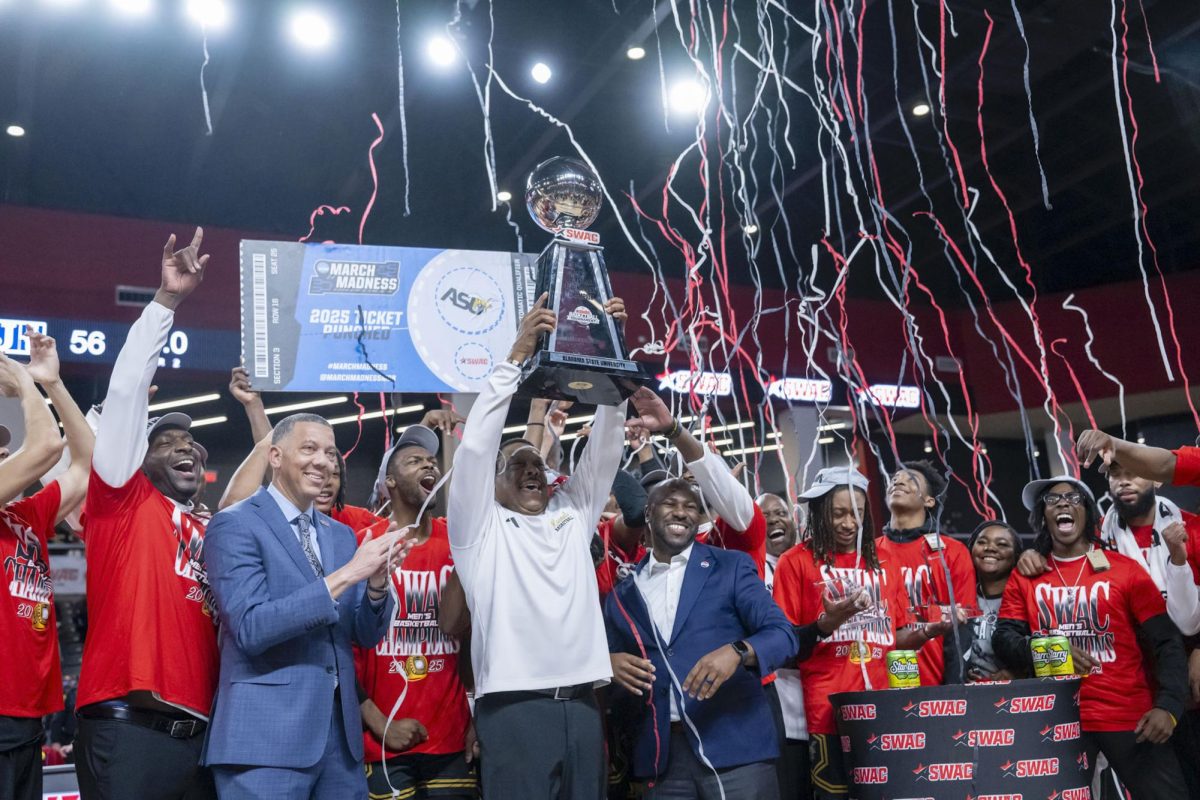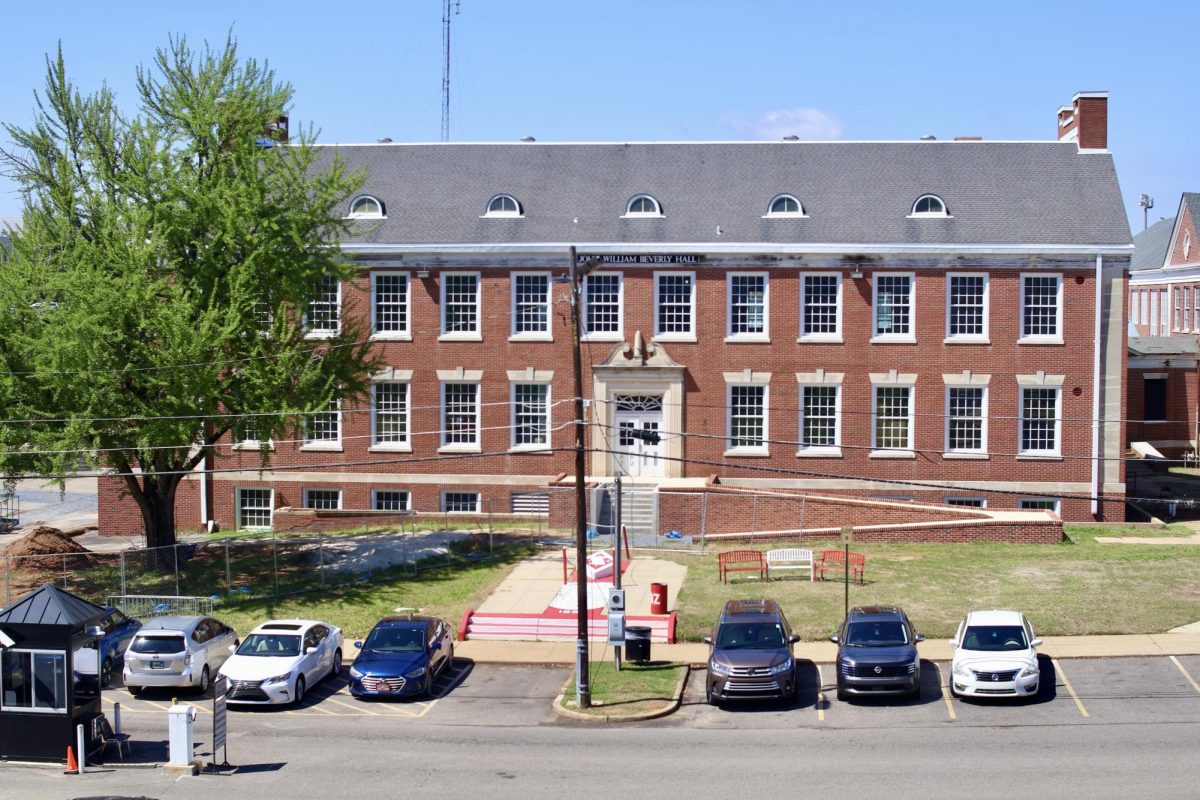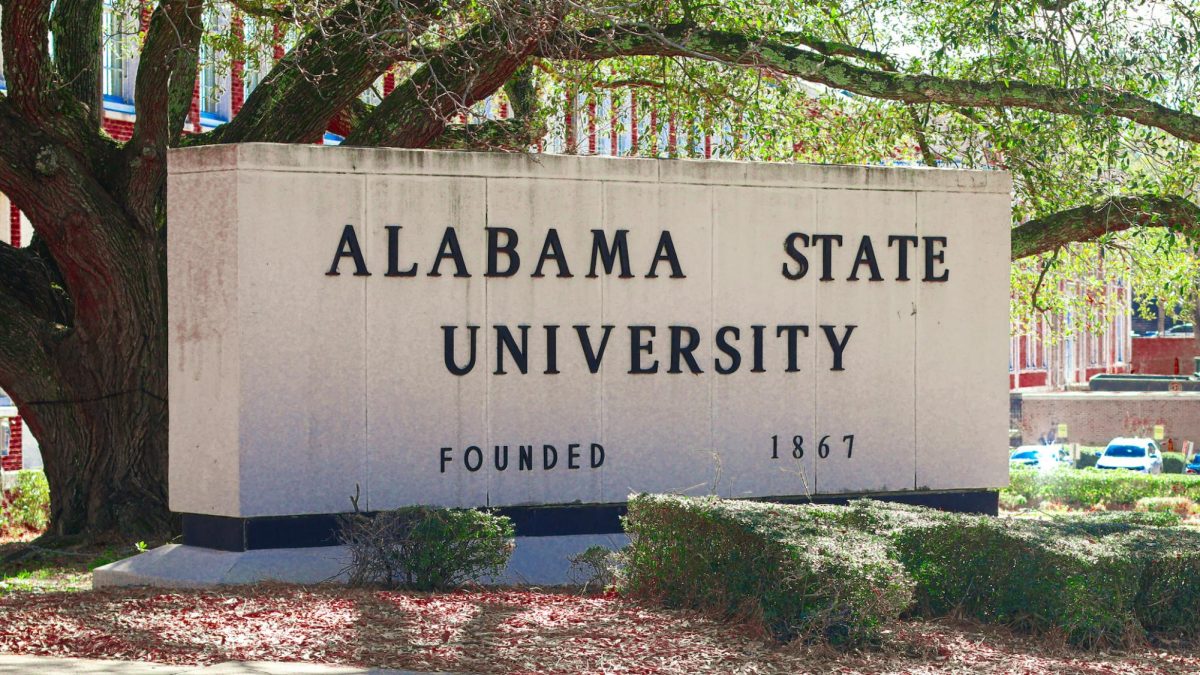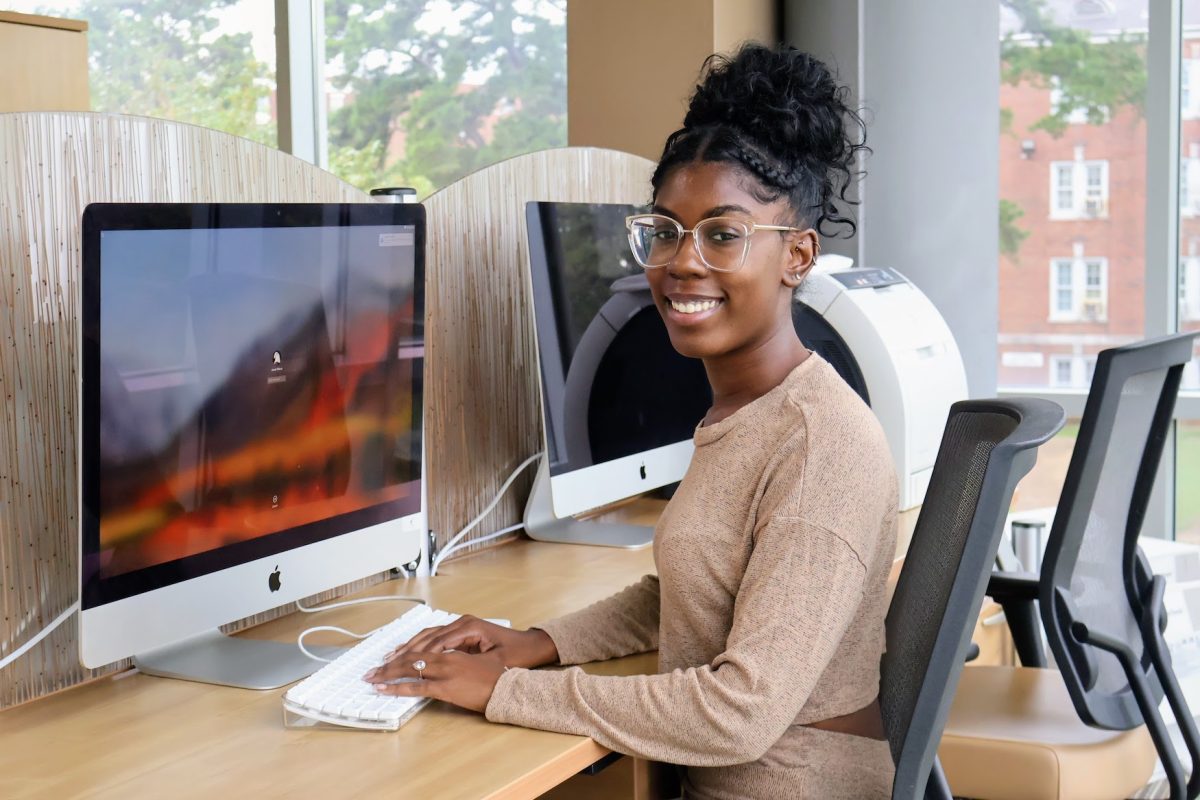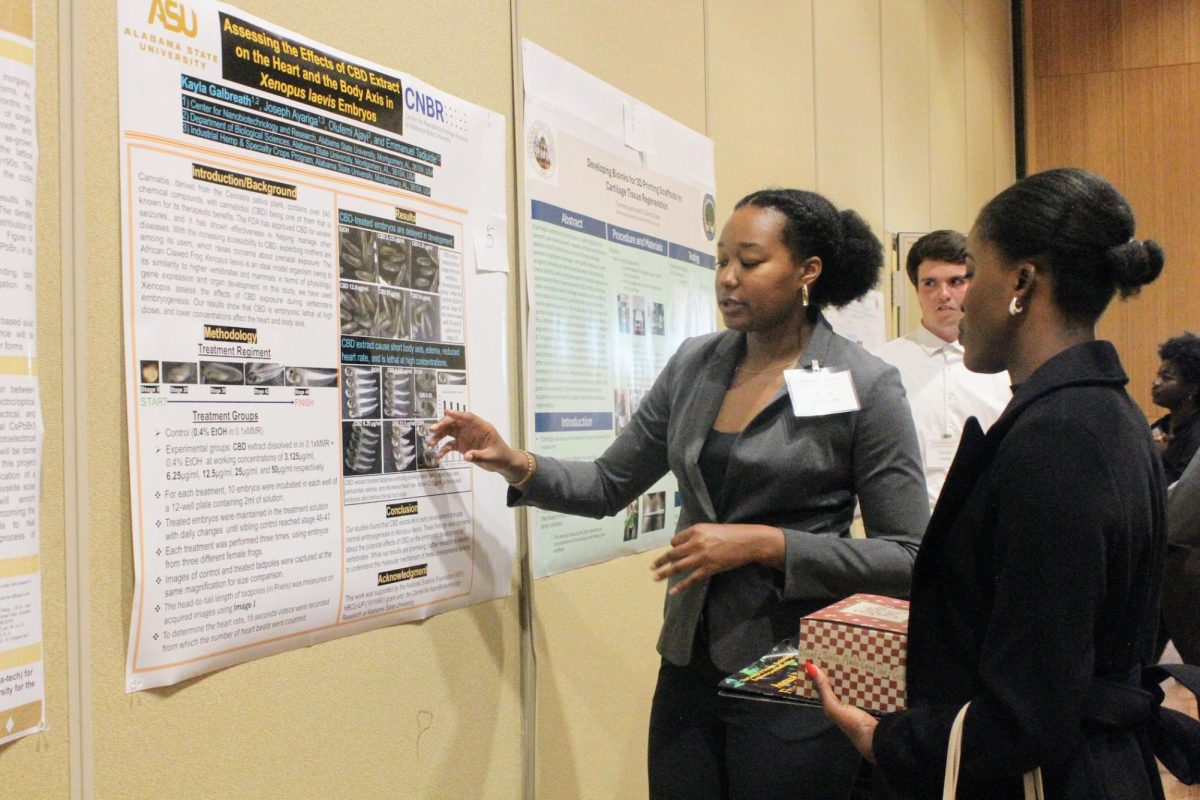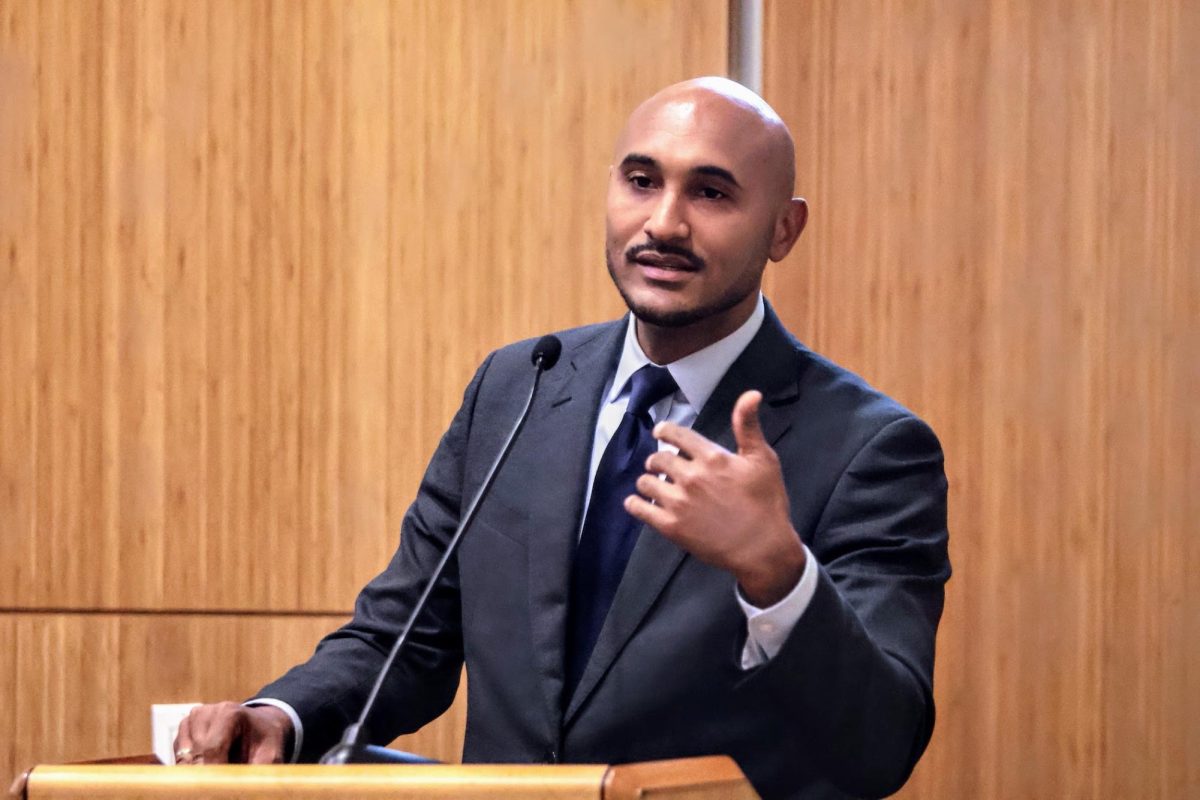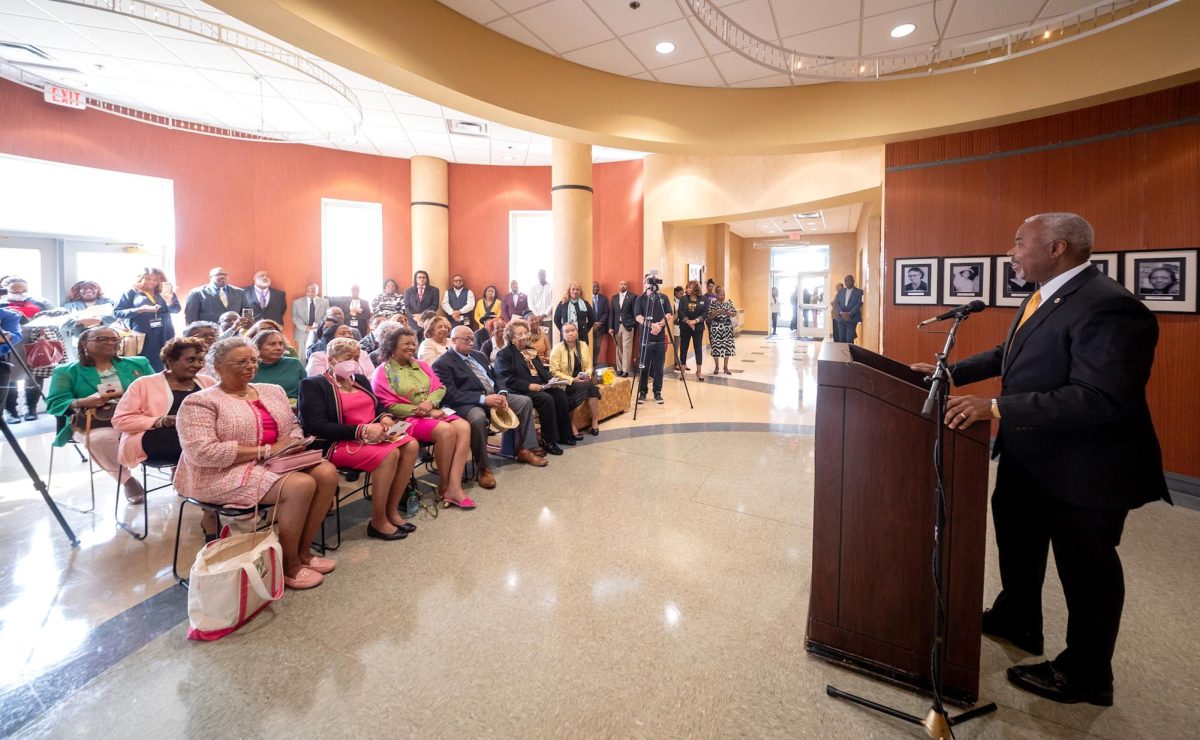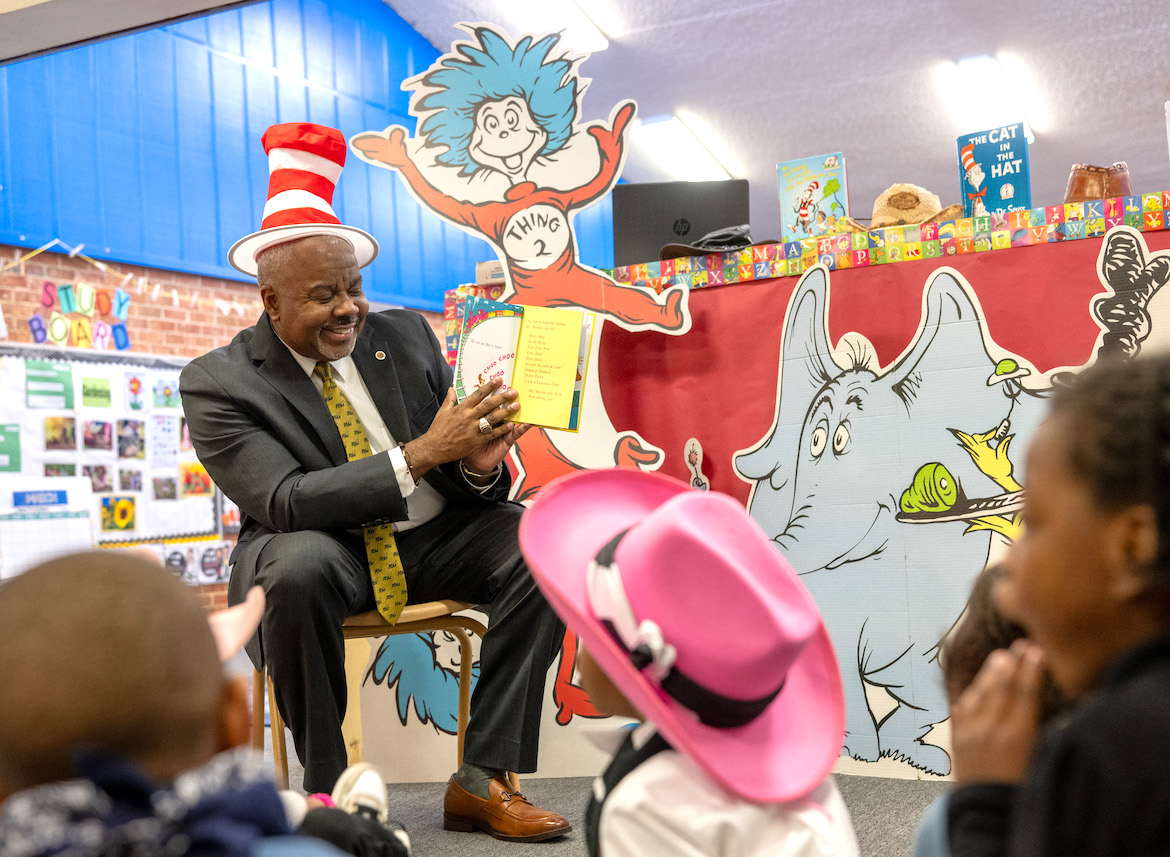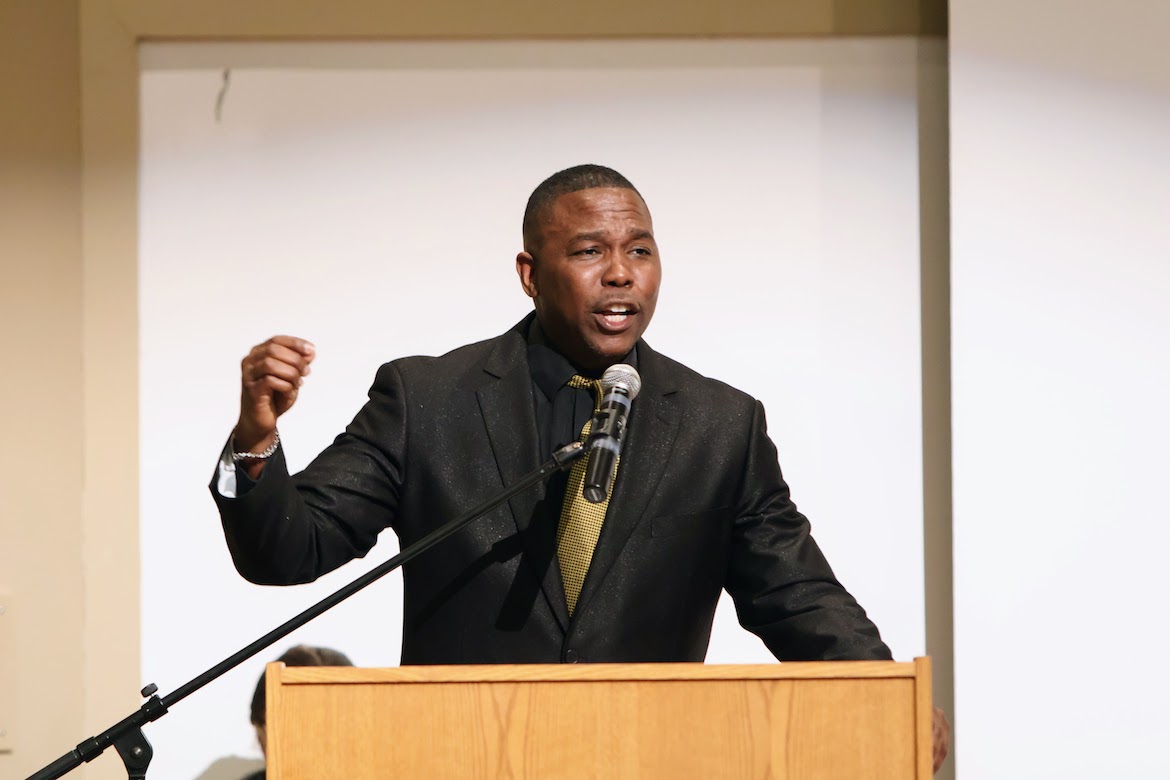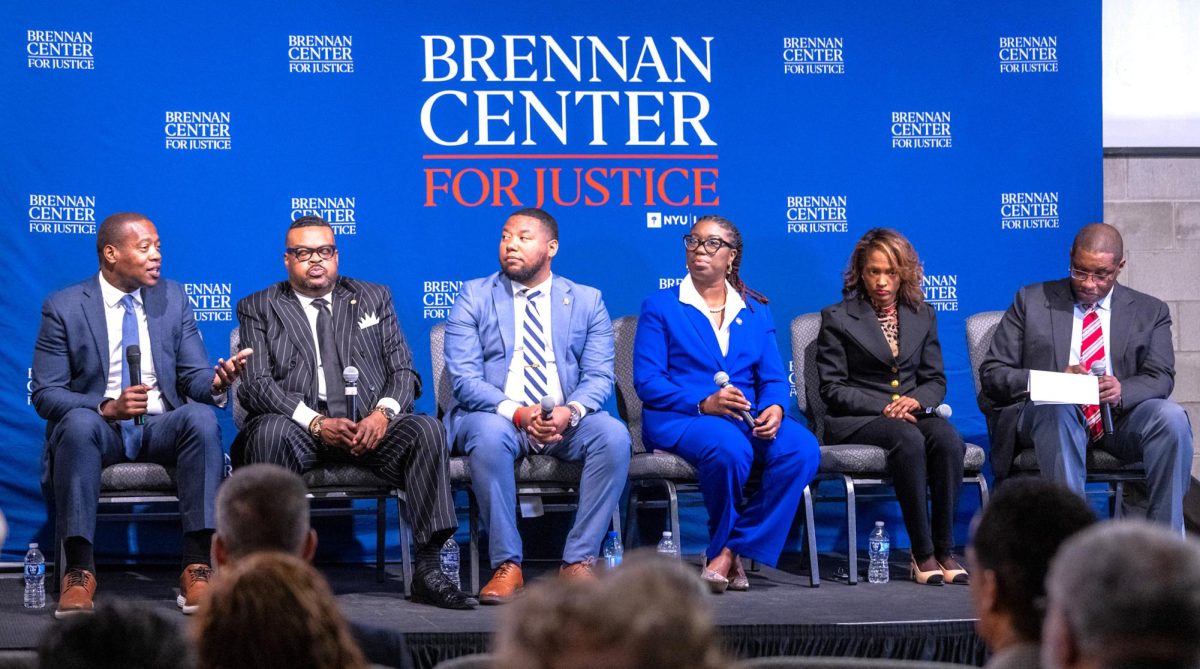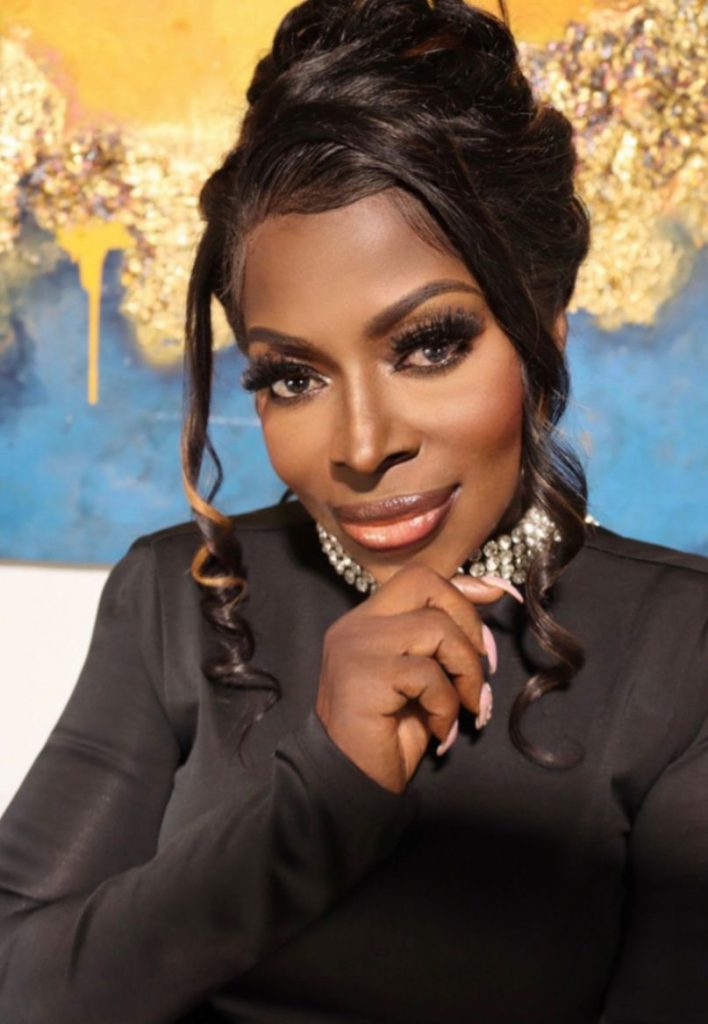The sound of swinging clubs and the promise of new opportunities filled the air at Alabama State University on Aug. 13, as the campus hosted its second annual event: Swing Into Success: Diversity in Golf for Students.
Held at 11 a.m. in the game room on the first floor of the John Garrick Hardy Center, the event aimed to break down barriers in the golf industry by offering students from diverse backgrounds a unique chance to network and learn more about the world of golf.
Representatives from over 14 organizations, such as the Professional Golfers’ Association (PGA), American Junior Golf Association (AJGA), National Golf Player Development Foundation (NGPDF), United States Golf Association (USGA) and the Ladies Professional Golf Association (LPGA) had tables at the event which gave students a chance to talk to them and learn more about both the sport and the business.
Michael Cooper, USGA senior advisor for historically Black colleges and universities (HBCUs) initiative, was there for the second year in a row to spearhead the event after collaborating with President Quinton T. Ross, Jr., Ed.D.
“They got us off to a grand start, a great start on our debut here last year,” Cooper said. “We had over 100 students come through and register to be part of the event, and we’re hoping to surpass that this year. But more than anything, what a way to kick off year two right here at Alabama State.”
Cooper continued by enlightening the audience to his history in golf. As the youngest of seven children from the south side of Chicago, Cooper views the things he has seen as a result of working in the industry as a privilege, one he wants to share so that more students experience the opportunities that golf provides.
“Our mission is to educate the students and the faculty at the HBCU campuses of the business of golf,” Cooper explained. “Not so much the playing of golf, but the business of golf. Golf is a $102 billion industry, with over 2 million jobs and not enough diversity in the workforce right now. So that’s why our job is more informative right now, and hopefully, it’ll turn into internships and jobs for some of our students.”
In regards to the future of this initiative and how it may grow in the future, Cooper added that his measuring stick for success is how many students get opportunities rather than how much awareness is spread.
“And also right now, we’ve got 10 in the pilot program to expand by 10 more this year, and we’d like to get more of the 102 HBCUs involved,” Cooper said. “So we’re making our rounds to different campuses and returning to ones where we’ve had success.”
Ross was one of the initiative’s biggest advocates.
“We’re so excited to be here to celebrate the anniversary of making golf your thing,” Ross said. “It was a year ago today that we kicked off this initiative through the White House initiative on historically black colleges and the Professional Golfers Association. Mr. Kirby and Mr. Cooper brought this to fruition along with our great golf coach. But what this is all about is really exposing those who have never been exposed to the game of golf while exposing them to the business of golf.”
Ross continued.
“When you look at golfing, it’s a multi-billion dollar business, and there are a lot of different professions that are within the golf ranks. So we’re just excited to provide this opportunity for our students. And of course, to celebrate again the inaugural kick-off last year in a place where history is made. They began here, and we’re just so great and happy to be back here today to celebrate.”
Jason Cable, vice president and director of intercollegiate athletics, remarked that the first Swing Into Success event was an introduction, while the second was a celebration of the progress made and the opportunities created.
“In terms of the individuals that participated last year, some got internships and some were exposed to the game,” Cable said. “When we think about golf, the majority of the time you think about playing and coaching, but there are so many different career opportunities associated with the game, and this is the year anniversary of exposing our students to those opportunities.”
Cable has seen a growth in interest when it comes to golf.
“Obviously, we have a golf program, but we are connecting the game to the student body to grow the game within the student body and grow the game within the community to get better as a university,” Cable shared. “As the university gets better, the athletic department thrives. And so, I think that the benefit is closely tied to the community diversity model of this represented in our strategic plan.”
Cable hopes that students take away the notion that exposure and access are key to success and that many of these lucrative business deals are being closed on golf courts.
“Golf can expose you to so many different things just in the game itself,” Cable said. “The connections that are made and the exposure you have to other avenues of success, I think is important.”
It is the business opportunities in golf that interest senior communications major, Jefferey Roberts, who noted that the College of Business Administration requires students to take a golf class to graduate.
“It’s very proven that golf and business go hand in hand,” Roberts remarked. “So why not, you know, kill two birds with one stone?”
Roberts continued.
“The influx of ideas coming from different places is a really good thing. You don’t want all the ideas coming from the same basket. You won’t have new thinkers, new innovations and new things. You’ve got people from different backgrounds coming to the golf world. It brings a new perspective and new changes, things that people enjoy and that they just couldn’t think of for themselves.”
Roberto Earle-Lynch is a graduating senior with a double major in business management and marketing management. Earle-Lynch shared that one of his advisors pushed to him the idea that golf is not just a sport, but a billion-dollar industry.
“On different levels, there’s different jobs,” Earle-Lynch said. “Just come out, try to explore and see what the opportunities are.”
In connection with the diversity aspect of the event, Earle-Lynch remarked that closed mouths do not get fed.
“If you’re not looking for those spaces or if you’re not looking for those opportunities, you don’t know what might happen,” Earle-Lynch said. “So just go ahead and try to open some doors, you know, you might find the next Tiger Woods somewhere in one of these agencies.”
Categories:
University and PGA aim to break down barriers in golf industry
Denise Ringo, Managing Editor for Editorial and Reportorial
August 24, 2024
During the Swing Into Success: Diversity in Golf for students, students from every college within the university were greeted by golf professionals regarding the numerous opportunities in golf.
Story continues below advertisement
0
More to Discover


